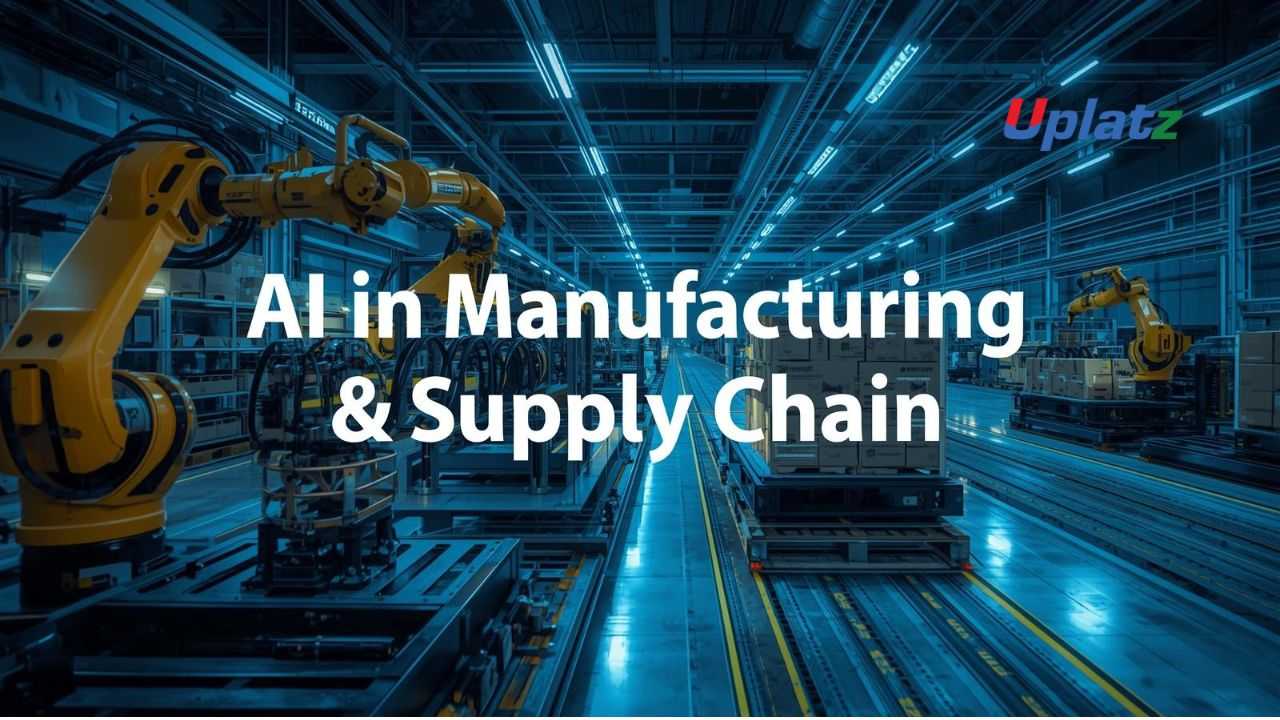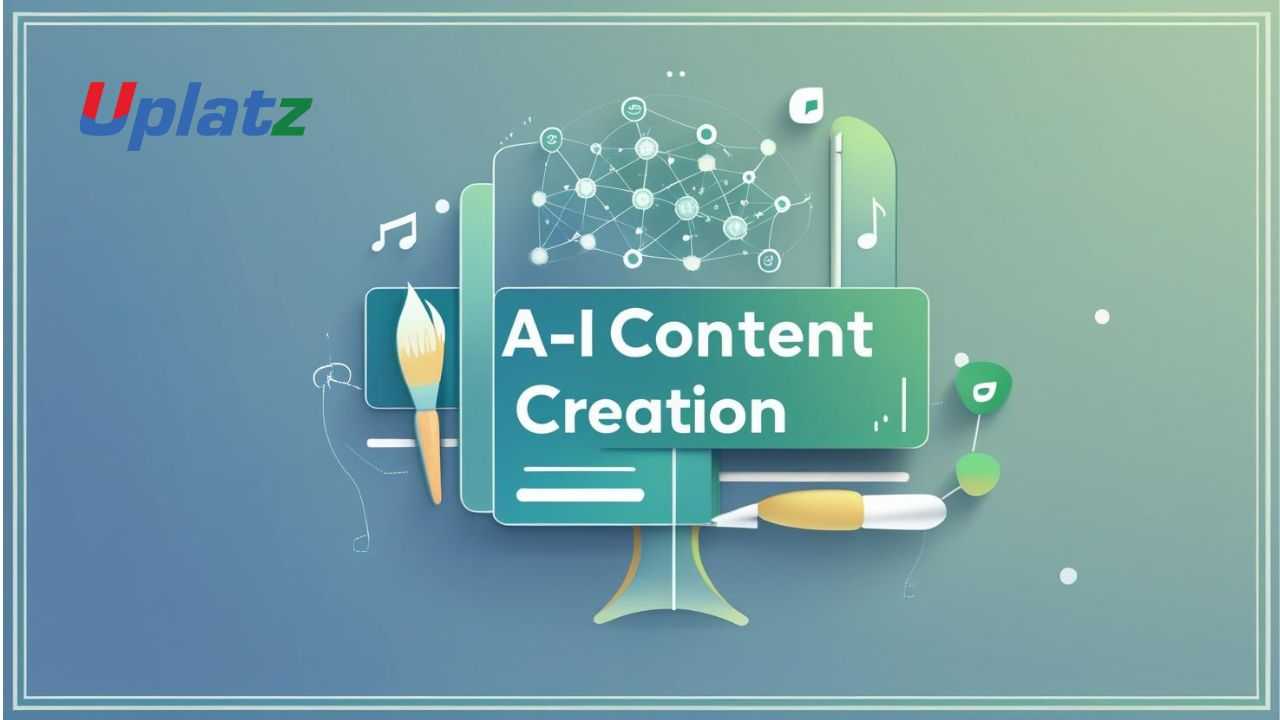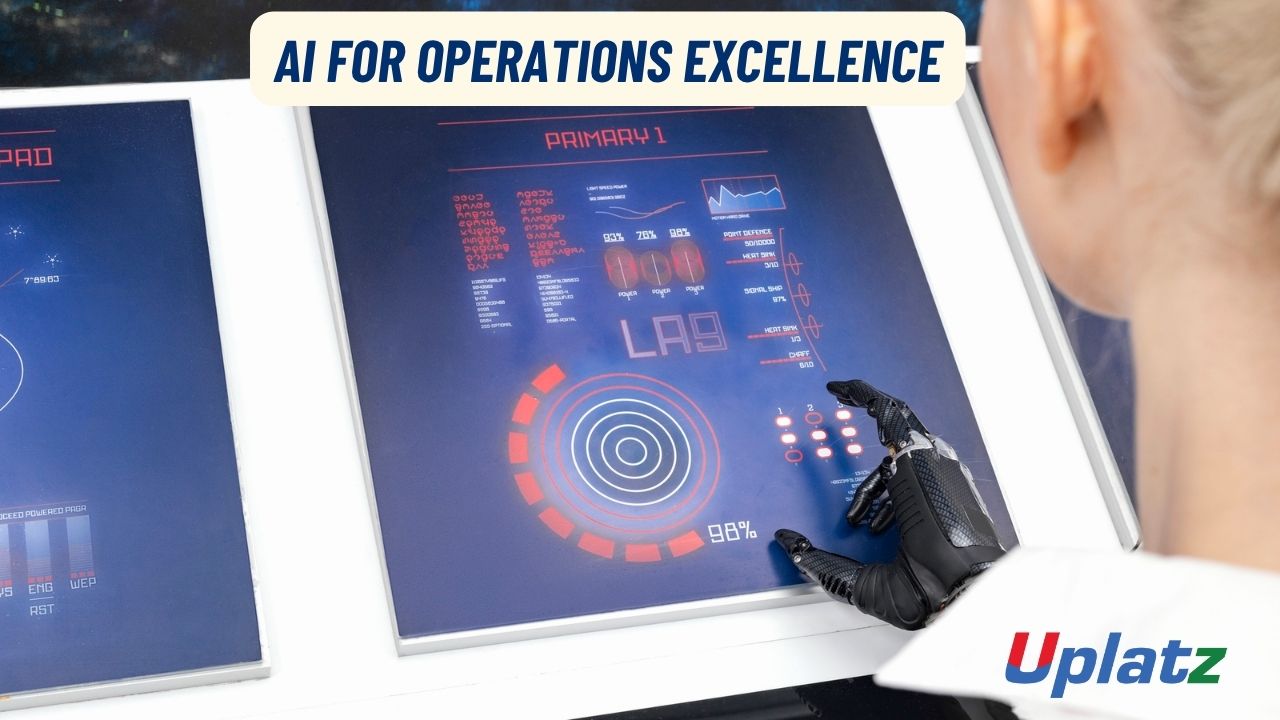AI in Manufacturing & Supply Chain
Harness artificial intelligence to optimize production, logistics, and supply chain efficiency. Price Match Guarantee
Full Lifetime Access
Access on any Device
Technical Support
Secure Checkout
Course Completion Certificate
Price Match Guarantee
Full Lifetime Access
Access on any Device
Technical Support
Secure Checkout
Course Completion Certificate
 91% Started a new career
BUY THIS COURSE (
91% Started a new career
BUY THIS COURSE (GBP 12 GBP 29 )-
 83% Got a pay increase and promotion
83% Got a pay increase and promotion
Students also bought -
-

- AI Cybersecurity
- 10 Hours
- GBP 29
- 10 Learners
-

- AI for Content Creation
- 10 Hours
- GBP 29
- 10 Learners
-

- AI for Operations Excellence
- 10 Hours
- GBP 29
- 10 Learners

AI in Manufacturing & Supply Chain – Driving Operational Intelligence and Industrial Automation is a comprehensive, hands-on course designed to help professionals understand how artificial intelligence (AI), machine learning (ML), and advanced data analytics are reshaping the industrial landscape. The course takes you deep into how AI technologies are revolutionizing production, logistics, and supply chain management—enabling smart factories, predictive operations, and data-driven decision-making across global industries.
As the world transitions into the era of Industry 4.0, organizations are leveraging AI to connect machines, people, and processes in real time. Manufacturers are using intelligent systems to detect equipment faults before they occur, automate quality inspection, forecast demand accurately, and optimize supply networks dynamically. This course provides both the strategic understanding and technical foundation required to harness the full potential of AI in industrial environments.
Through detailed explanations, case studies, and guided projects, learners will explore the real-world implementation of AI across the manufacturing value chain — from production planning and process optimization to logistics automation and supplier intelligence. You’ll also learn how AI integrates with Industrial IoT (IIoT), robotics, computer vision, and predictive analytics to create highly efficient, adaptive, and resilient operations.
What is AI in Manufacturing and Supply Chain?
Artificial Intelligence in manufacturing and supply chain refers to the use of algorithms, data-driven models, and intelligent automation to analyze patterns, make predictions, and optimize decision-making across industrial systems. Instead of relying on manual processes or human intuition, AI systems continuously learn from operational data — such as machine sensor readings, production output, and logistics flows — to recommend or execute actions that enhance performance and reduce costs.
In manufacturing, AI can detect equipment wear before breakdowns occur (predictive maintenance), monitor product quality in real time (computer vision), and automatically adjust process parameters for optimal performance. In supply chain management, AI forecasts demand, optimizes inventory levels, predicts disruptions, and recommends the most efficient transportation routes.
These capabilities enable organizations to shift from reactive to predictive and prescriptive operations, where decisions are data-driven, fast, and increasingly autonomous.
How AI Works in Manufacturing and Logistics
AI in manufacturing and supply chain operations relies on three main pillars: data, algorithms, and automation.
-
Data Collection and Integration – Sensors, IoT devices, ERP systems, and production equipment generate vast amounts of data. AI systems aggregate this data in centralized platforms or data lakes.
-
Model Training and Learning – Machine learning models analyze patterns, correlations, and anomalies in this data to forecast outcomes such as demand, machine failures, or supply delays.
-
Automation and Execution – Once trained, these models trigger automated actions — such as adjusting machine settings, reordering materials, or rerouting shipments — without manual intervention.
This integration between AI and operations technology forms the foundation of smart manufacturing and intelligent supply chain ecosystems.
How AI is Used in the Industry
AI applications are now embedded throughout the manufacturing and logistics value chain, enhancing efficiency, safety, and profitability. Some common use cases include:
-
Predictive Maintenance: Using ML algorithms to anticipate equipment failures and schedule maintenance before breakdowns occur, reducing downtime and maintenance costs.
-
Quality Control and Inspection: Applying computer vision systems to detect surface defects, misalignments, or product inconsistencies in real time.
-
Production Optimization: Automatically adjusting machine parameters or scheduling to minimize waste and maximize throughput.
-
Demand Forecasting: Using historical sales data and external variables (weather, promotions, seasonality) to predict future demand with greater accuracy.
-
Inventory Optimization: Balancing stock levels to avoid both overstocking and shortages.
-
Supply Chain Risk Analysis: Predicting supplier delays or logistics bottlenecks using data from multiple sources.
-
Autonomous Logistics: Employing AI-powered robots, drones, and autonomous vehicles for material handling and transportation within warehouses or production facilities.
Global leaders such as Siemens, Bosch, Toyota, Amazon, and Foxconn have successfully adopted these technologies, achieving significant gains in efficiency, safety, and customer satisfaction.
Benefits of Learning AI in Manufacturing & Supply Chain
Mastering AI for industrial operations provides enormous career and business advantages. By learning how to apply AI tools and frameworks to real-world scenarios, you will:
-
Predict and Prevent Failures: Reduce costly unplanned downtime with predictive analytics.
-
Enhance Productivity: Use AI-driven automation to streamline production and logistics workflows.
-
Optimize Costs: Leverage machine learning for better resource allocation, energy savings, and inventory management.
-
Improve Quality: Detect manufacturing defects and process deviations early using computer vision.
-
Build Resilient Supply Chains: Predict risks, manage uncertainties, and improve responsiveness.
-
Support Sustainability Goals: Use data-driven insights to reduce waste, energy consumption, and carbon footprint.
-
Gain Competitive Advantage: Lead digital transformation initiatives and enable smart manufacturing capabilities in your organization.
With AI adoption accelerating across industries, these skills are in high demand among manufacturing engineers, data scientists, supply chain analysts, and operations leaders.
Why Learn AI in Manufacturing Now?
The global shift toward Industry 4.0 and smart factories has made AI expertise a key differentiator in industrial careers. As production systems become more connected, real-time, and data-rich, professionals capable of combining domain knowledge with AI tools are driving innovation across sectors such as automotive, aerospace, healthcare, energy, and consumer goods.
Moreover, disruptions such as the COVID-19 pandemic have highlighted the importance of agile, data-informed, and resilient supply chains. AI enables companies to predict disruptions, simulate scenarios, and dynamically adjust production or logistics decisions — making it indispensable for modern business continuity and competitiveness.
What You Will Learn
This course covers a wide spectrum of topics to help you design and deploy AI-driven manufacturing and logistics systems. You will learn how to:
-
Understand the fundamentals of AI, ML, and data analytics in industrial contexts.
-
Develop predictive maintenance systems using sensor and time-series data.
-
Build demand forecasting and production planning models.
-
Apply computer vision for quality inspection and defect detection.
-
Optimize inventory and warehouse operations using AI algorithms.
-
Design AI-enabled supply chain networks that adapt dynamically to changes.
-
Implement IoT and AI integration for real-time monitoring and control.
Through hands-on projects and case studies, you will apply your knowledge to realistic industrial datasets, including:
-
Building a predictive maintenance model for manufacturing machinery.
-
Creating a demand forecasting system using historical supply chain data.
-
Implementing a computer vision solution for automated quality control.
Who Should Enroll
This course is ideal for:
-
Manufacturing Engineers and Operations Managers seeking to modernize industrial workflows.
-
Supply Chain and Logistics Professionals aiming to optimize planning, inventory, and distribution.
-
Data Scientists and AI Engineers developing predictive models for industrial applications.
-
Industrial Automation and IoT Specialists working on connected and intelligent systems.
-
Students and Professionals aspiring to specialize in Industry 4.0 and digital transformation.
With its balanced blend of theory, practical projects, and case studies, this course enables learners to bridge the gap between AI technology and industrial implementation — helping them drive measurable performance improvements across the entire manufacturing and supply chain ecosystem.
By the end of this course, learners will be able to:
- Explain the role of AI in transforming manufacturing and supply chain operations.
- Understand predictive analytics and data-driven decision frameworks.
- Implement machine learning models for forecasting and optimization.
- Apply computer vision for quality control and defect detection.
- Design predictive maintenance systems using IoT and sensor data.
- Optimize logistics, routing, and warehouse operations using AI algorithms.
- Integrate AI into enterprise resource planning (ERP) and MES systems.
- Use reinforcement learning for dynamic production scheduling.
- Apply anomaly detection for supply chain risk management.
- Deploy AI solutions for sustainable, efficient, and resilient operations.
Course Syllabus
Module 1: Introduction to AI in Industry 4.0
Overview of digital transformation, smart factories, and industrial automation trends.
Module 2: Data-Driven Manufacturing and Supply Chain Concepts
Understanding data sources, pipelines, and AI-readiness in industrial systems.
Module 3: Predictive Maintenance and Equipment Health Monitoring
Using ML and IoT sensor data to predict failures and schedule maintenance.
Module 4: Quality Control through Computer Vision
Defect detection, image classification, and automated inspection with AI.
Module 5: Demand Forecasting and Inventory Optimization
Applying regression, ARIMA, and deep learning for accurate predictions.
Module 6: Supply Chain Planning and Optimization
AI-driven decision models for procurement, capacity, and resource allocation.
Module 7: Logistics and Route Optimization
Vehicle routing, load balancing, and delivery time prediction using ML algorithms.
Module 8: Robotics, Automation, and Reinforcement Learning
AI in robotics, cobots, and adaptive production scheduling.
Module 9: IoT Integration and Real-Time Analytics
Connecting sensors, devices, and cloud platforms for live data processing.
Module 10: Risk Management and Anomaly Detection
Detecting supply chain disruptions and fraud using predictive analytics.
Module 11: Sustainability and Responsible AI in Industry
Optimizing energy, reducing waste, and ensuring responsible industrial AI.
Module 12: Capstone Project – AI-Enabled Manufacturing System
Design and deploy an end-to-end AI solution for predictive maintenance, demand forecasting, or logistics optimization.
Upon successful completion, learners will receive a Certificate of Mastery in AI in Manufacturing & Supply Chain from Uplatz.
This certification validates your ability to design, develop, and deploy AI-driven solutions that enhance efficiency, productivity, and resilience in industrial ecosystems.
It demonstrates your expertise in:
- Implementing machine learning and predictive analytics for manufacturing optimization.
- Integrating AI with IoT, robotics, and enterprise data systems.
- Applying intelligent automation across production, inventory, and logistics operations.
This credential confirms that you are equipped to lead digital transformation projects within manufacturing, logistics, automotive, and industrial sectors, enabling organizations to operate smarter, faster, and more sustainably.
Expertise in AI for manufacturing and supply chain unlocks opportunities in both industrial and technology domains, including:
- Industrial Data Scientist
- AI Manufacturing Engineer
- Supply Chain Optimization Specialist
- Predictive Maintenance Analyst
- Operations Data Engineer
- Smart Factory Consultant
Organizations worldwide seek professionals who can combine technical AI knowledge with domain expertise to advance the future of intelligent manufacturing and logistics.
- What are the main applications of AI in manufacturing?
Predictive maintenance, quality control, process optimization, and robotics automation. - How does AI improve supply chain management?
Through demand forecasting, route optimization, inventory control, and real-time visibility. - What is predictive maintenance?
A technique using AI and sensor data to predict equipment failures before they occur. - How is computer vision used in industrial quality control?
It automates defect detection and inspection by analyzing product images in real time. - What role does reinforcement learning play in manufacturing?
It optimizes production scheduling, resource allocation, and robotic control through trial-and-error learning. - How can AI help in logistics optimization?
By predicting delivery times, reducing fuel consumption, and improving fleet efficiency. - What challenges exist in implementing AI in industrial settings?
Data silos, integration with legacy systems, scalability, and skill gaps. - What is the connection between IoT and AI in Industry 4.0?
IoT provides real-time data from connected devices, which AI analyzes to drive intelligent automation. - How can AI contribute to sustainable manufacturing?
By optimizing energy consumption, minimizing waste, and supporting circular economy models. - What tools or frameworks are used in industrial AI applications?
TensorFlow, PyTorch, Scikit-learn, Azure IoT, AWS IoT, and industrial data platforms like Siemens MindSphere or GE Predix.









